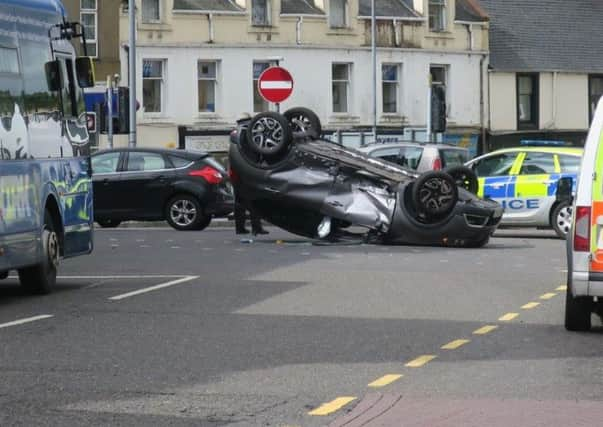100 people convicted of killing on Scottish roads walk free


Grief-stricken families expressing disappointment outside courts following the sentencing of motorists whose reckless behaviour has claimed almost 300 lives in Scotland since 2005, have become a familiar sight as lives continue to be lost on the roads.
But figures obtained from the Scottish government can now lay bare the full extent of the disparities in the way the law and the criminal justice system is dealing with drivers, some of them under the influence of drink and drugs, who are responsible for deaths described by the bereaved as “feeling like murder”. An investigation by The Scotsman, i newspaper and our sister titles details for the first time what campaigners argue is the chronic leniency of the courts in dealing with killer drivers. The findings will increase the pressure on government across the UK to revise sentencing rules for dangerous driving offences.
Data obtained from the Scottish Government shows:
Advertisement
Hide AdAdvertisement
Hide Adn In the years since parliament increased the longest sentence from ten to 14 years in jail, the average sentence for 149 motorists convicted of death by dangerous driving in Scotland has been only 4.8 years.
n A total of 98 people convicted of death by dangerous or careless driving in Scotland since 2005 have walked free from court. Of that total, 77 received community service. In 21 cases, the offender escaped with only a fine while two were released with ‘admonishments’.
A long-delayed consultation on a review of sentencing in dangerous driving cases has been promised by Westminster ministers to begin by the end of the year, with the Scottish Sentencing Council unveiling a review in October this year. But critics point out the Westminster review was first promised in 2014 and a former Cabinet minister last night accused ministers of “foot-dragging” over the issue, saying it was clear that the law and sentencing governing culpable deaths on Britain’s roads is “wholly inadequate”.
Campaigners are demanding measures, including a root and branch review of sentencing guidelines for judges to ensure tougher sentences are imposed in the most serious cases and the closure of loopholes which mean that it is in the interest of drink drivers involved in a fatal collision to flee the scene.
The number of drivers charged with dangerous driving in England and Wales is rising. While Scottish figures are not available this investigation has found many of the same issues apply across the UK. Last year saw an increase of 20 per cent to 5,940 in motorists in England and Wales charged with dangerous driving. But critics say those convicted are escaping too lightly.
A lawyer who specialises in securing compensation for those killed on Scottish roads, Brenda Mitchell, said: “There is, a problem with our justice system, both criminal and civil, where we fail to acknowledge the frailty and vulnerability of road users who choose active travel whether by bicycle or on foot.”
The senior partner added: “At present, our criminal justice system does not act as the deterrent it should.”
Ben Bradshaw, Labour MP, told the i newspaper and The Scotsman: “The penalties and sentences passed on people who kill behind the wheel of a car are wholly inadequate.”